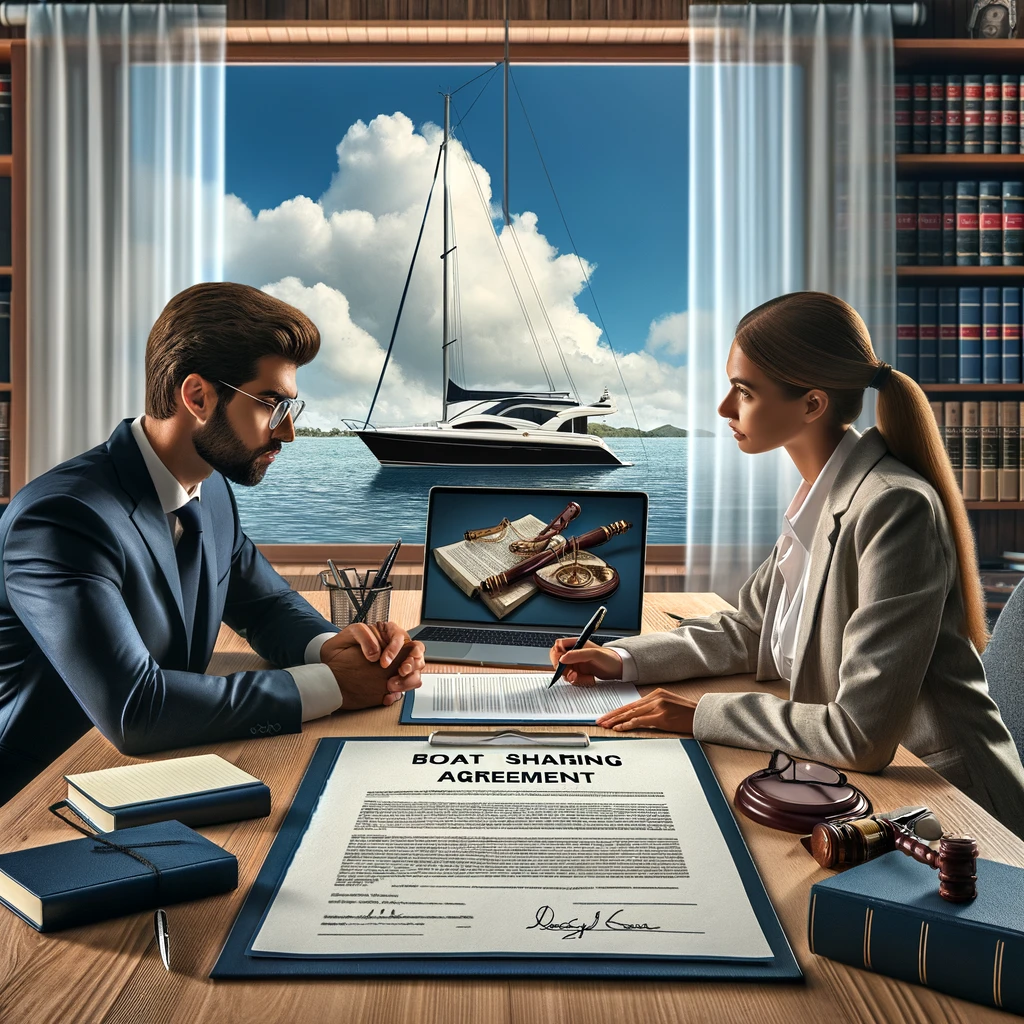
Boat sharing offers a unique opportunity for maritime enthusiasts to enjoy the pleasures of boating without bearing the full brunt of ownership costs and responsibilities. A well-crafted boat sharing agreement is pivotal in ensuring a harmonious sharing arrangement. This detailed guide explores the essentials of boat sharing agreements, diving into their legal framework, key components, and best practices for drafting an effective agreement.

Boat sharing agreements are contracts formed between two or more parties who agree to share the use, expenses, and maintenance of a boat. Unlike boat clubs or rental arrangements, sharing agreements offer individuals a personal stake in the vessel, providing more autonomy over its use while mitigating the financial burden of sole ownership.
A boat sharing agreement formalizes the relationship between co-owners, setting clear expectations and responsibilities. It helps prevent conflicts by outlining the terms of use, financial obligations, maintenance schedules, and procedures for dispute resolution.
While boat sharing agreements do not fall under a specific legal category, they are governed by general contract law principles. Depending on the jurisdiction, other maritime and property laws may also apply, making it essential to consult legal resources and professionals familiar with local regulations. For an overview of contract law, the Cornell Law School's Legal Information Institute provides a comprehensive resource.
Clearly define all co-owners involved in the agreement, ensuring legal clarity on the parties to the contract.
Include a detailed description of the boat, including make, model, year, registration number, and any relevant equipment or features.
Detail the ownership share of each party, typically based on their financial contribution to the purchase price and ongoing expenses.
Outline the financial responsibilities of each co-owner, including purchase contributions, operational costs, maintenance, and repair expenses. Specify payment schedules and account management procedures.
Develop a fair and flexible system for scheduling boat use among co-owners, taking into account peak periods and personal preferences.
Agree on maintenance responsibilities, schedules, and the selection of service providers. Include procedures for emergency repairs and unforeseen expenses.
Establish a mechanism for resolving disagreements, whether through mediation, arbitration, or legal action, to ensure the partnership can navigate conflicts effectively.
Define the terms under which a co-owner can sell or transfer their share, including first refusal rights for remaining co-owners and valuation methods.
Despite the best preparations, disputes may arise. Implementing the agreed-upon dispute resolution process is crucial, as is approaching disagreements with a willingness to find mutually beneficial solutions.
For further insights into effective partnership agreements and dispute resolution, Harvard Business Review offers articles and case studies on partnership dynamics and conflict management.

Create & Review Your Contracts 10x Quality and Ease
Lawyer-level AI handles all your contract needs, with real lawyers providing safeguarding support

Boat sharing agreements offer a structured path to shared boat ownership, providing maritime enthusiasts with a cost-effective and enjoyable way to experience boating. By understanding the legal considerations, incorporating essential components, and adhering to best practices in drafting these agreements, co-owners can set the stage for a successful and enjoyable partnership on the water.
For additional resources on maritime law and boat ownership, governmental sites like NOAA's Office of Coast Survey and educational resources from maritime academies can offer valuable information and guidance.
Create & Review All Your Contracts Online With LegalNow AI